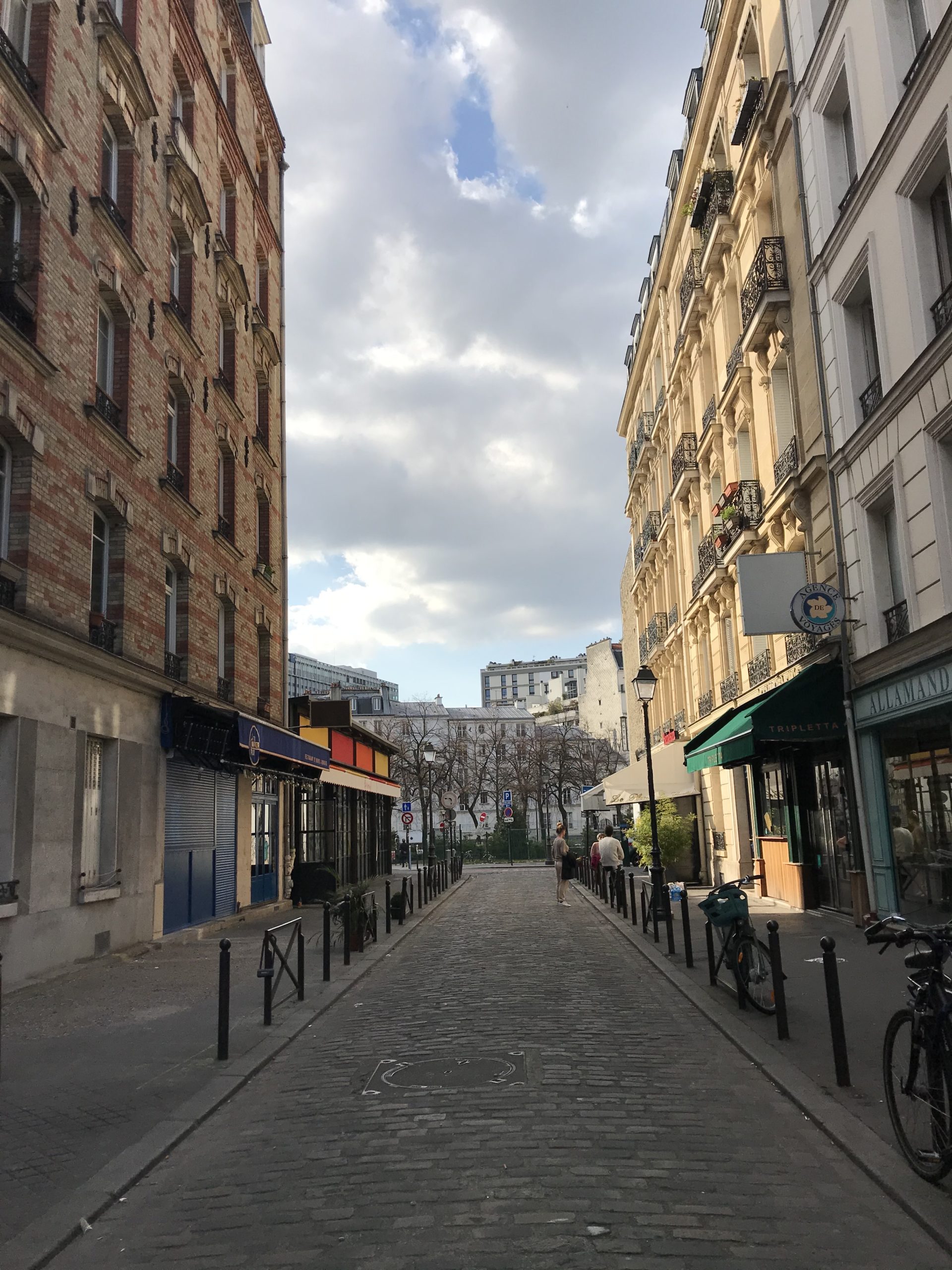
Featured image: the empty streets of Paris. Photo courtesy of Mao’s friend, Carla.
By Mao Shiotsu
The streets of Paris have been unnervingly silent since March 17th, 2020. Parisians could face up to €130 (approx. $150 USD) of fines if caught outside without a “Attestation De Déplacement Dérogatoire,” a document proving that their reason for travel falls in one of seven government-approved ones, including shopping for necessities and exercising within a 0.6 mile radius of their home.
In three months, COVID-19 quite literally changed the world. Scenes of vacant city centers and patients strapped to beds in the garages of over-capacity hospitals are eerily reminiscent of those from a science-fiction film–except this time, we can’t exit the movie theater and get back to our normal lives.
Carla Decombes (YC ‘23) tells me over FaceTime from her Paris apartment that as she sat surrounded by the four walls of her bedroom, she felt “panicked,” knowing she was “completely alone with [her] thoughts and couldn’t leave.” “The streets are strange,” she says, describing how some lone Parisians walk aimlessly, desperately attempting to get a reprieve from the confines of their homes.

Another snapshot of the empty streets of Paris. Photo courtesy of Mao’s friend, Carla.
This is the first pandemic to ravage Europe since the Spanish Influenza. France records around 82,000 cases and 7,000 deaths, according to the Worldometer database on April 4th, 2020. Its neighbors Italy and Spain have the highest death tolls in Europe, with close to 1000 everyday. Due to the highly contagious nature of the virus, the Italian government has banned funerals, and many bodies are cremated instead of buried as per the Catholic tradition. Francesca, a friend in Milan, tells me that she “hasn’t stepped outside in eight days.”
The public of those countries have strictly obeyed lockdown regulations. However, many people in areas not yet completely overturned by the virus continue to go outside, regardless of pleas from the government. In Florida, “hundreds” flocked to beaches last weekend, according to an Independent article. [1] Until recently, too many locals in my home city, Tokyo, still met up with friends and ate at restaurants. My friend told me, “it just doesn’t feel real here because everyone in Japan seems relaxed about it.”
This naive yet understandable nonchalance was also common in Italy a few weeks ago, according to Francesca. Milanese went to bars and visited grandparents. Carla agrees, saying, “at the beginning, people thought, ‘Who cares? We’re never gonna get the virus.’ When restaurants and cafes started closing, people finally started getting scared.” Japan reports around 200-300 new cases daily, numbers that France, Italy, and Spain had seen roughly a month ago. It is glaringly clear that if Japan does not take decisive action to contain the virus very soon, it will fall victim to the same public health emergency overwhelming Europe today.
People who live in areas that still have relatively few cases and who have had the chance to see how quickly this virus spread in other countries have the responsibility to learn from those examples. Following social distancing guidelines from an early stage is crucial, even if they seem over-exaggerated, because as Carla warns, “it [COVID-19] spreads so fast.” By the time hospitals are overflowing, it’s too late.
[1] https://www.independent.co.uk/news/world/americas/coronavirus-florida-cases-map-beaches-open-ron-desantis-stay-home-a9435971.html